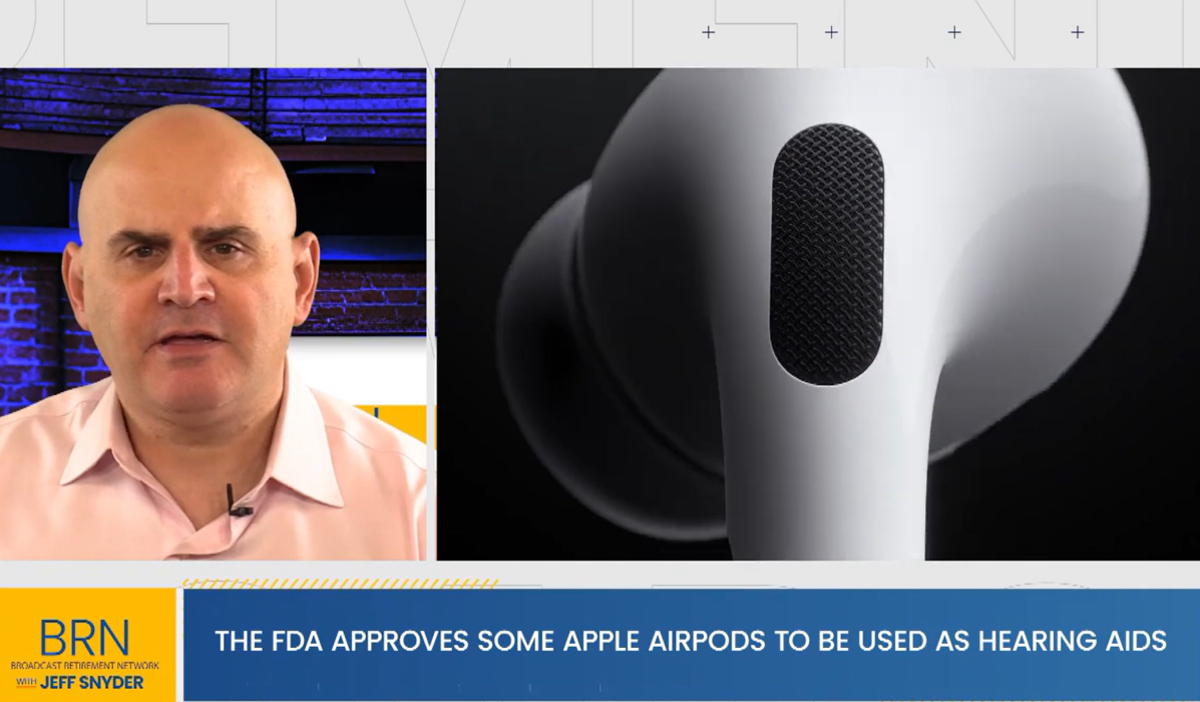The U.S. Food and Drug Administration (FDA) has approved certain models of Apple AirPods to be used as hearing aids, marking a significant shift in the accessibility of hearing technology. This decision comes as approximately one in six Americans with hearing impairments do not use traditional hearing aids, primarily due to their high costs and stigma associated with them.
On a recent segment of the Broadcast Retirement Network, Jeffrey Snyder spoke with Julie Norin, AuD., an audiologist from Towson University, about the implications of this development. Norin expressed optimism about the FDA’s decision, noting that it could spark important conversations about hearing loss and the need for accessible treatment.
Enhancements to AirPods
The FDA’s approval hinges on an upcoming software enhancement for the AirPods. Norin clarified that this is not a new device but rather an update that will allow users to utilize their existing AirPods as hearing aids. “I think anything that can generate a deeper conversation about hearing loss is great,” she stated, underlining the importance of increasing awareness around the issue.
Norin also pointed out that while this development might improve access to hearing assistance, it is unlikely to replace traditional prescription hearing aids. She emphasized several crucial differences between over-the-counter devices, like the AirPods, and their prescription counterparts.
The Value of Professional Support
One of the central concerns regarding over-the-counter hearing aids is the lack of professional support. Norin explained that traditional hearing aids typically come with extensive professional guidance, including comprehensive medical evaluations and ongoing support. In contrast, over-the-counter options often require users to self-assess their needs and manage their devices without professional intervention.
The cost difference is also significant. Some over-the-counter devices approach $3,000 a pair, similar to prescription models, but without the professional services that come with them. This raises concerns about the effectiveness of such devices, particularly since many individuals may not realize they have a treatable condition that could be causing their hearing loss.
According to research from Johns Hopkins University, untreated hearing loss can lead to negative psychological effects, including depression and cognitive decline. Norin highlighted that the issue is not merely about amplification but also involves understanding the underlying health of the ear and overall auditory system.
Norin stressed the importance of consulting a hearing professional, such as an audiologist or an otolaryngologist, before opting for over-the-counter devices. These specialists can conduct necessary evaluations to determine the appropriate course of action, whether it be medical treatment or hearing aids.
The FDA’s ruling on over-the-counter hearing aids is relatively new, having been established in 2022. As the market evolves, there will undoubtedly be a need for ongoing research to evaluate the effectiveness of these devices in comparison to traditional hearing aids.
Norin concluded by emphasizing her eagerness to see how these changes unfold and whether they lead to improved outcomes for individuals with hearing loss. “It is important that we monitor the situation and continue to assess the effectiveness of these new options,” she stated.
As Apple prepares to roll out the software update for the AirPods in October 2023, many will be watching closely to see how this development impacts accessibility and the conversation around hearing loss treatment.







